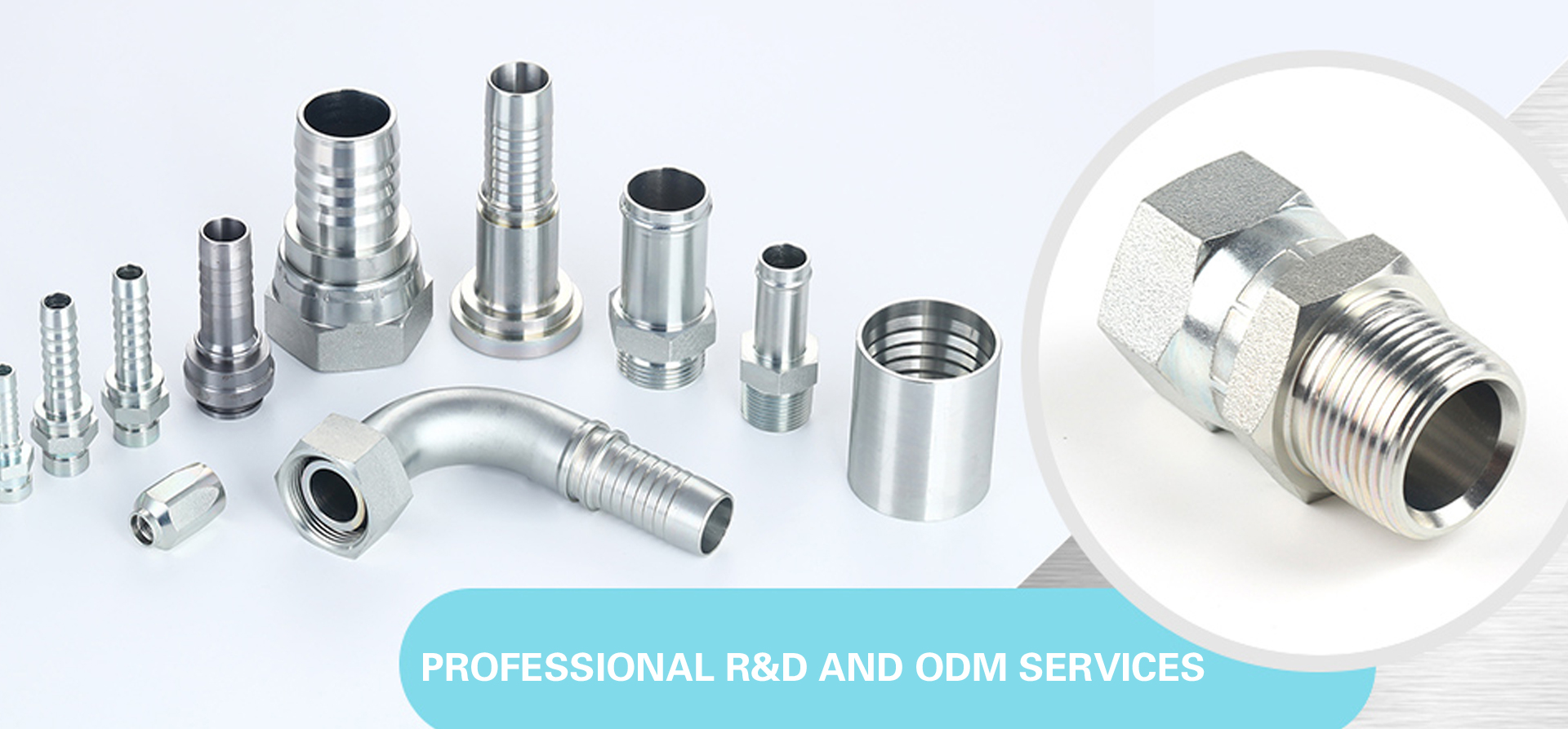Faucets are an essential component of any plumbing system, providing a controlled flow of water for various domestic and commercial purposes. Over time, the washers in faucets can wear out, leading to leaks and reduced efficiency. Understanding the cost implications of replacing these washers is crucial for homeowners and businesses alike. This article delves into the intricacies of washer replacement, focusing on cost factors, benefits, and the role of Hoson, a leading hydraulic fitting manufacturer.
Understanding Faucet Washers
Faucet washers are small, round, flat disks made from rubber, silicone, or neoprene. They play a critical role in sealing the faucet valve, preventing water from leaking when the faucet is turned off. Over time, washers can become worn, cracked, or deformed due to constant pressure and water exposure, necessitating replacement.
Types of Faucet Washers
There are several types of faucet washers, each designed for specific faucet types:

Compression Washers: Used in traditional compression faucets, these are the most common type and are typically made of rubber or neoprene.
Ceramic Disc Washers: Found in modern faucets, these washers are more durable and require less maintenance.
Ball Faucet Washers: Used in ball-type faucets, these washers are part of a more complex system involving springs and seals.
Cartridge Faucet Washers: These washers are part of a cartridge system, providing a smooth operation and requiring specific replacement parts.
Factors Influencing the Cost of Washer Replacement
The cost of replacing faucet washers can vary significantly based on several factors:
1. Type of Faucet
The type of faucet plays a significant role in determining the cost of washer replacement. Modern faucets with ceramic discs or cartridges may require specific parts that are more expensive than traditional rubber washers.
2. Labor Costs
Labor costs can vary based on geographic location, the complexity of the faucet system, and the expertise required. Hiring a professional plumber typically incurs higher costs than a DIY approach, but it ensures proper installation and reduces the risk of future leaks.
3. Quality of Replacement Parts
The quality of replacement washers also affects the overall cost. High-quality washers may have a higher upfront cost but offer better durability and performance, leading to long-term savings.
4. Frequency of Replacement
Regular maintenance and timely replacement of washers can prevent more significant issues, such as water damage or increased utility bills. The frequency of replacement depends on the quality of the washers and the water conditions in the area.
The Role of Hoson in Faucet Washer Replacement
Hoson, a renowned hydraulic fitting manufacturer, plays a crucial role in providing high-quality replacement parts for faucets. With a commitment to innovation and quality, Hoson offers a wide range of washers designed to meet various needs and specifications.
Hoson's Product Range
Hoson provides an extensive selection of faucet washers, including:
Rubber Washers: Durable and cost-effective, ideal for traditional faucets.
Silicone Washers: Resistant to extreme temperatures and chemicals, suitable for specialized applications.
Ceramic Disc Washers: Designed for modern faucets, offering long-lasting performance.
Quality Assurance
Hoson is committed to delivering products that meet stringent quality standards. Each washer undergoes rigorous testing to ensure durability, performance, and compatibility with various faucet systems.
Benefits of Replacing Faucet Washers
Replacing worn-out faucet washers offers several benefits:
1. Preventing Leaks
Replacing washers promptly prevents leaks, conserving water and reducing utility bills. Leaky faucets can waste significant amounts of water, leading to increased costs and environmental impact.
2. Enhancing Faucet Performance
New washers ensure smooth operation and precise control of water flow, enhancing overall faucet performance. This is particularly important in commercial settings where efficiency is crucial.
3. Extending Faucet Lifespan
Regular maintenance and timely replacement of washers can extend the lifespan of faucets, reducing the need for costly replacements and repairs.
4. Improving Water Quality
Worn-out washers can contribute to water contamination, affecting the taste and safety of the water supply. Replacing washers helps maintain water quality and safety.
DIY vs. Professional Replacement
Deciding between a DIY approach and hiring a professional for washer replacement depends on several factors:
DIY Replacement
For those with basic plumbing skills, replacing faucet washers can be a straightforward task. DIY replacement can save on labor costs, but it requires the right tools and knowledge to ensure proper installation.
Professional Replacement
Hiring a professional plumber guarantees expertise and precision, reducing the risk of improper installation and future leaks. While it incurs higher costs, professional replacement offers peace of mind and long-term reliability.
Conclusion
Replacing faucet washers is a crucial maintenance task that can prevent leaks, enhance performance, and extend the life of faucets. Understanding the cost factors and benefits of washer replacement helps homeowners and businesses make informed decisions. Hoson, as a leading hydraulic fitting manufacturer, provides high-quality washers that meet diverse needs, ensuring optimal performance and durability.
Whether opting for a DIY approach or professional assistance, timely replacement of faucet washers is a wise investment that pays off in terms of efficiency, cost savings, and environmental responsibility.
By exploring the cost of replacing washers in faucets, this article aims to provide comprehensive insights into the intricacies of this essential maintenance task. With the expertise of Hoson and an understanding of the factors influencing costs, readers can make informed decisions that ensure the longevity and efficiency of their plumbing systems.



